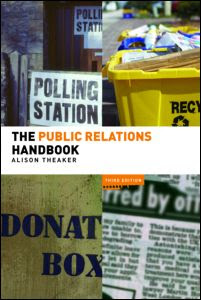
With the continued growth and popularity of PR degrees and courses, the subject of my blog was aimed at looking into the importance of having degrees and its impact on the PR industry. My focus is to know the perspectives and viewpoints of PR postgraduates and the decision behind their choice to do PR.
My findings illustrated that PR degrees are key to kick off with a career in the field because of market demand. It also shows that more and more people are having PR degrees and the number of practitioners who have not PR backgrounds is diminishing. A new generation of qualified and graduated PR is coming.
On the professional level, I can say that there are emerging markets which need qualified and specialized PR staff along with established markets which continue to look for PR practitioners as the market expands and grows.
On the academic level, I found out that PR degrees help to develop academic research as well as public relations theories.
Therefore, based on my research and current academic experience, I came to this conclusion that education is important and can be further enhanced by PR firms which can play a key role in the practical education process through the extensive internships they offer. I believe interns not only get invaluable experience but are one of the best ways to secure jobs. In such situation, we will have the required degree and the entry-level experience that employers are looking for!
Public Relations education: our future is banking on it!
My findings illustrated that PR degrees are key to kick off with a career in the field because of market demand. It also shows that more and more people are having PR degrees and the number of practitioners who have not PR backgrounds is diminishing. A new generation of qualified and graduated PR is coming.
On the professional level, I can say that there are emerging markets which need qualified and specialized PR staff along with established markets which continue to look for PR practitioners as the market expands and grows.
On the academic level, I found out that PR degrees help to develop academic research as well as public relations theories.
Therefore, based on my research and current academic experience, I came to this conclusion that education is important and can be further enhanced by PR firms which can play a key role in the practical education process through the extensive internships they offer. I believe interns not only get invaluable experience but are one of the best ways to secure jobs. In such situation, we will have the required degree and the entry-level experience that employers are looking for!
Public Relations education: our future is banking on it!



